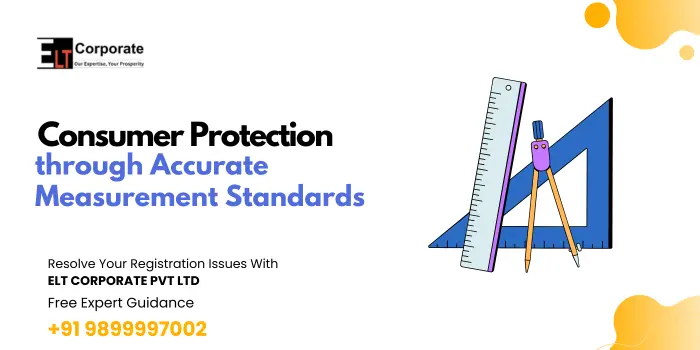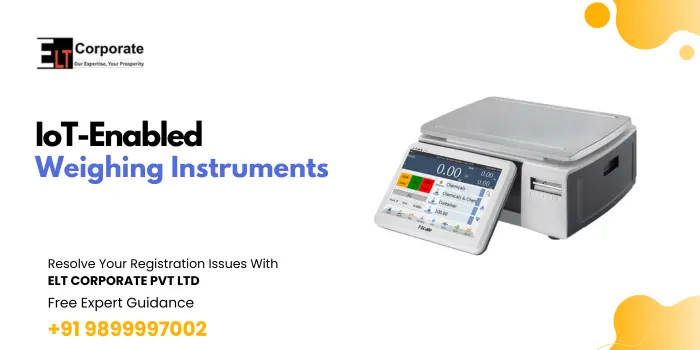Every time we buy goods by weight, volume, or length – be it vegetables by the kilo, milk by the litre, or fabric by the meter we trust that what’s shown on the scale or label is correct. Accurate measurement standards are crucial to ensure that consumers are not cheated, that businesses operate fairly, and that marketplaces are transparent and trustworthy.
In India, Legal Metrology laws enforce these measurement standards. They mandate that weighing and measuring instruments meet approved specifications, and that pre-packed goods carry correct information. This framework is designed to protect consumer rights and maintain fairness in trade.
In this article, we explore how accurate measurement standards contribute to consumer protection, how they are enforced, their impact on businesses, and what challenges and responsibilities lie ahead.
What Are Accurate Measurement Standards?
Accurate measurement standards refer to the rules, guidelines, and reference benchmarks that define how precise and reliable a measurement instrument must be in capturing weight, length, volume, or other units.
- These standards define tolerances (acceptable error margins) for measuring devices (e.g., a scale may have ±0.1 g tolerance).
- They include calibration protocols where a measuring instrument is compared against a certified standard.
- They involve periodic verification to ensure continued accuracy over time.
These standards ensure that measurements are consistent, reproducible, and fair across different regions and uses.
Why Is Accurate Measurement Essential for Consumer Protection?
Accurate measurement standards serve as a foundation for protecting consumers in multiple ways:
- Ensures Fairness in Trade: Customers receive exactly what they are charged for; no under-weighing or overcharging.
- Prevents Fraud and Misleading Practices: Traders cannot manipulate or tamper with instruments to cheat consumers.
- Builds Confidence in Marketplace: Consumers trust prices and product quantities when standards are enforced.
- Creates Accountability for Businesses: Sellers are legally obliged to use verified and approved measuring devices.
- Legal Redress: If disputes arise, measurement standards provide objective criteria for adjudication (e.g. in courts or consumer forums).
Without strong measurement standards, trade becomes unbalanced and consumers lose trust.
How Does Legal Metrology Enforce Measurement Standards in India?
Legal Metrology is the branch of government that oversees measurement standards. In India, the Legal Metrology Act, 2009, and the Legal Metrology (General) Rules, 2011, govern these practices.
Key enforcement mechanisms include:
- Model Approval: Only measuring instrument models approved by the authority may be manufactured, imported, or used in trade.
- Verification & Stamping: Devices must be periodically verified and stamped (sealed), indicating they meet accuracy norms before being used commercially.
- Inspection & Seizure: Officers may inspect premises, check devices, and seize non-compliant or tampered instruments.
- Penalties & Prosecution: Violations — such as using an inaccurate instrument — can lead to fines or criminal action.
- Consumer Complaints & Redress: Consumers can lodge complaints with Legal Metrology authorities if they suspect incorrect measurement or non-stamping.
These elements ensure that measurement standards are not just theoretical—they are actively enforced on the ground.
What Are the Responsibilities of Businesses under Measurement Standards?
For businesses, compliance with accurate measurement standards comes with clear responsibilities:
- Use Approved Instruments: Only devices with model approval should be used.
- Maintain Calibration & Verification Schedule: Instruments must be regularly calibrated and verified.
- Display Correct Information: Pre-packed goods must carry correct declarations (net quantity, manufacturer, date).
- Keep Records: Maintain logs of verification, calibration, and instrument maintenance.
- Respond to Inspections: Allow Legal Metrology officers to inspect and cooperate.
- Avoid Tampering: Do not interfere with seals or modify the instrument to bypass accuracy.
Businesses that meet these obligations not only comply with the law but also build reputation and customer satisfaction.
How Do Measurement Standards Impact E-Commerce & Digital Trade?
With the rise of online shopping and smart devices, accurate measurement gains new importance:
- Remote Weighing Devices: Smart scales in homes or kiosks that upload data must comply with legal accuracy standards.
- Pre-Packaged Goods Online: Products sold online must still show correct quantities, and measurement claims must be accurate.
- Digital Verification: Some devices may allow remote verification or real-time monitoring logs to prove compliance.
- Cross-Border Trade: Imported weighing instruments or packaged goods must comply with India’s measurement standards.
Thus, measurement standards must evolve to cover digital and e-commerce paradigms as well.
What Challenges Exist in Ensuring Accurate Measurement Standards?
Implementing and enforcing measurement standards face several challenges:
- Diverse Geography & Reach: Rural or remote areas may lack inspection coverage or infrastructure.
- Resource Constraints: Limited manpower, equipment, or funding for regular verification in many states.
- Technological Complexity: Smart / IoT-enabled measuring devices introduce new calibration, software, or security issues.
- Awareness Gap: Many small-scale traders or consumers are not aware of measurement rights.
- Instrument Ageing & Wear: Over time, instruments drift or degrade and need recalibration; many get ignored.
- Counterfeit Devices & Tampering: Non-approved or altered devices undermine standards.
Addressing these challenges requires investment, technology adoption, and regulatory modernisation.
What Future Trends Are Shaping Measurement Standards for Consumer Protection?
Looking ahead, measurement standards and consumer protection will evolve along these lines:
- IoT & Remote Monitoring: Instruments that self-report calibration data and usage logs.
- Blockchain & Traceability: Secure, tamper-evident logs of weighing history.
- Adaptive Standards: Dynamic tolerance standards based on use-case and environment.
- Mobile & Consumer Tools: Apps where consumers can validate weight readings or report deviations.
- Harmonisation with Global Metrology: Aligning Indian standards with OIML and international systems.
- Stronger Legal Integration: Laws tying consumer rights directly to measurement accuracy violations.
These trends will strengthen the link between technical measurement and real-world consumer rights.
Can a consumer demand verification of a weighing machine used by a shop?
Yes, in many jurisdictions, consumers can request to see verification certificates, stamps, or calibration records.
Does measurement fraud only affect grocery or small items?
No – it can affect any transaction involving weight, length, or volume, including industrial goods, chemicals, or even precious metals.






